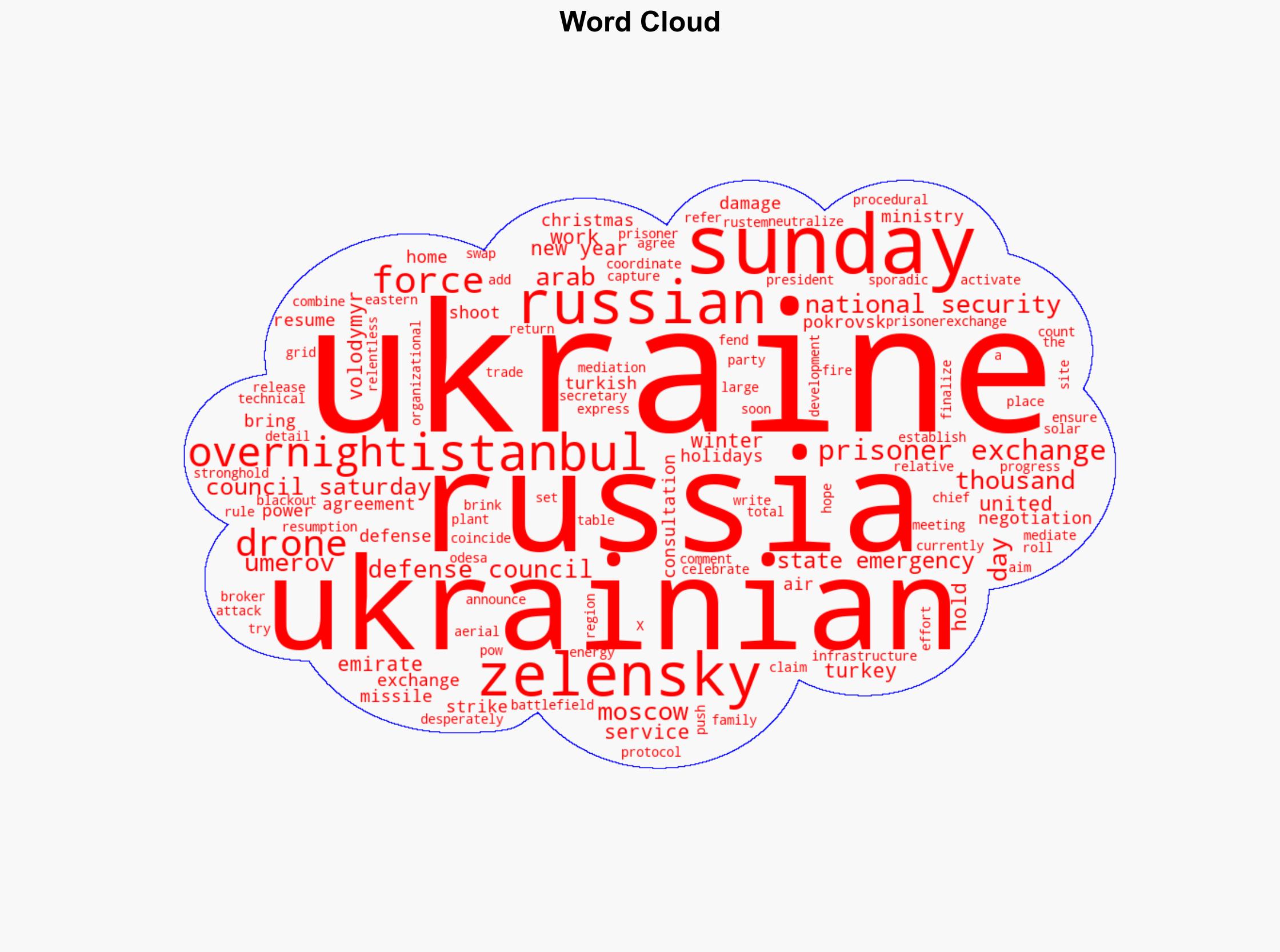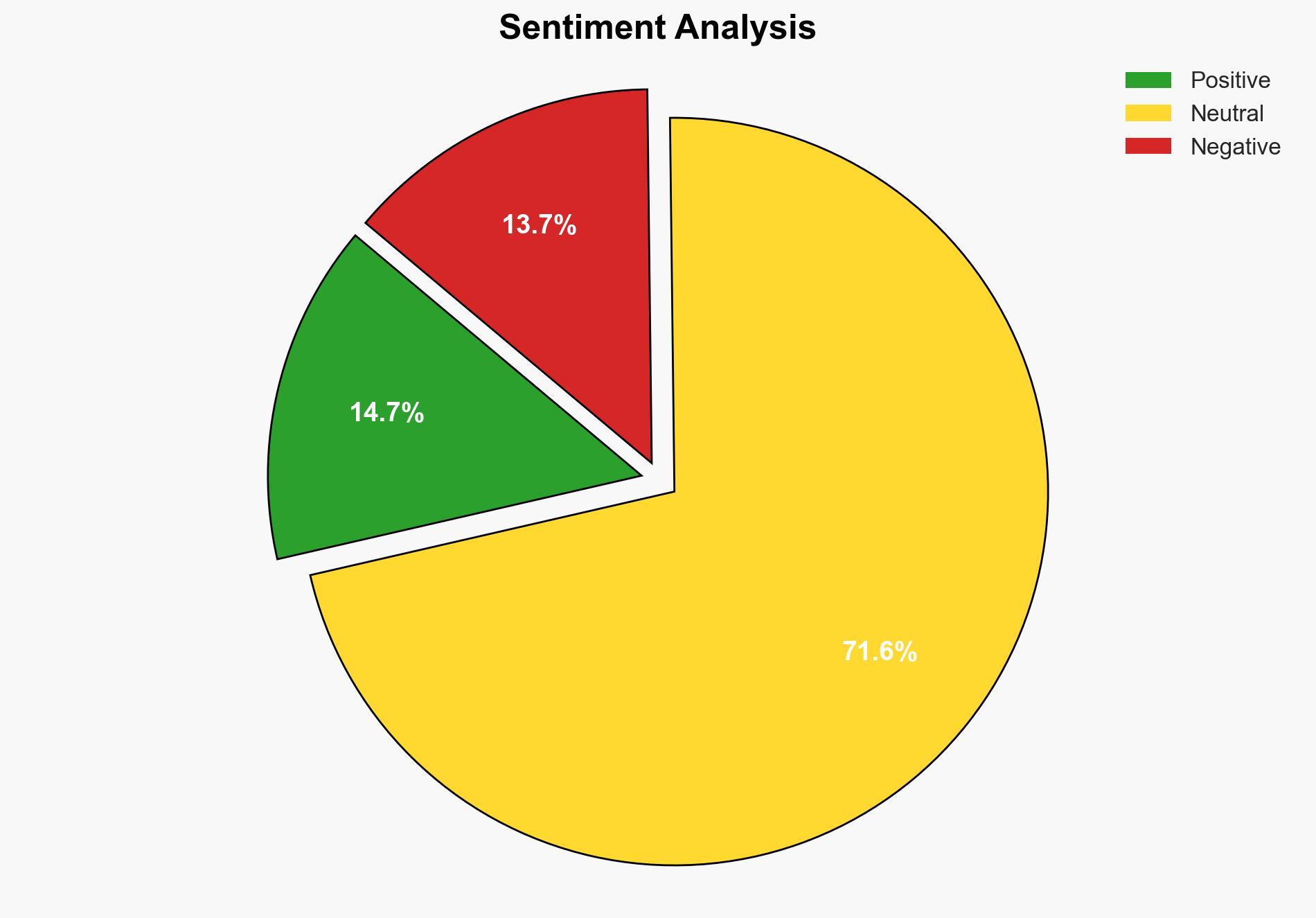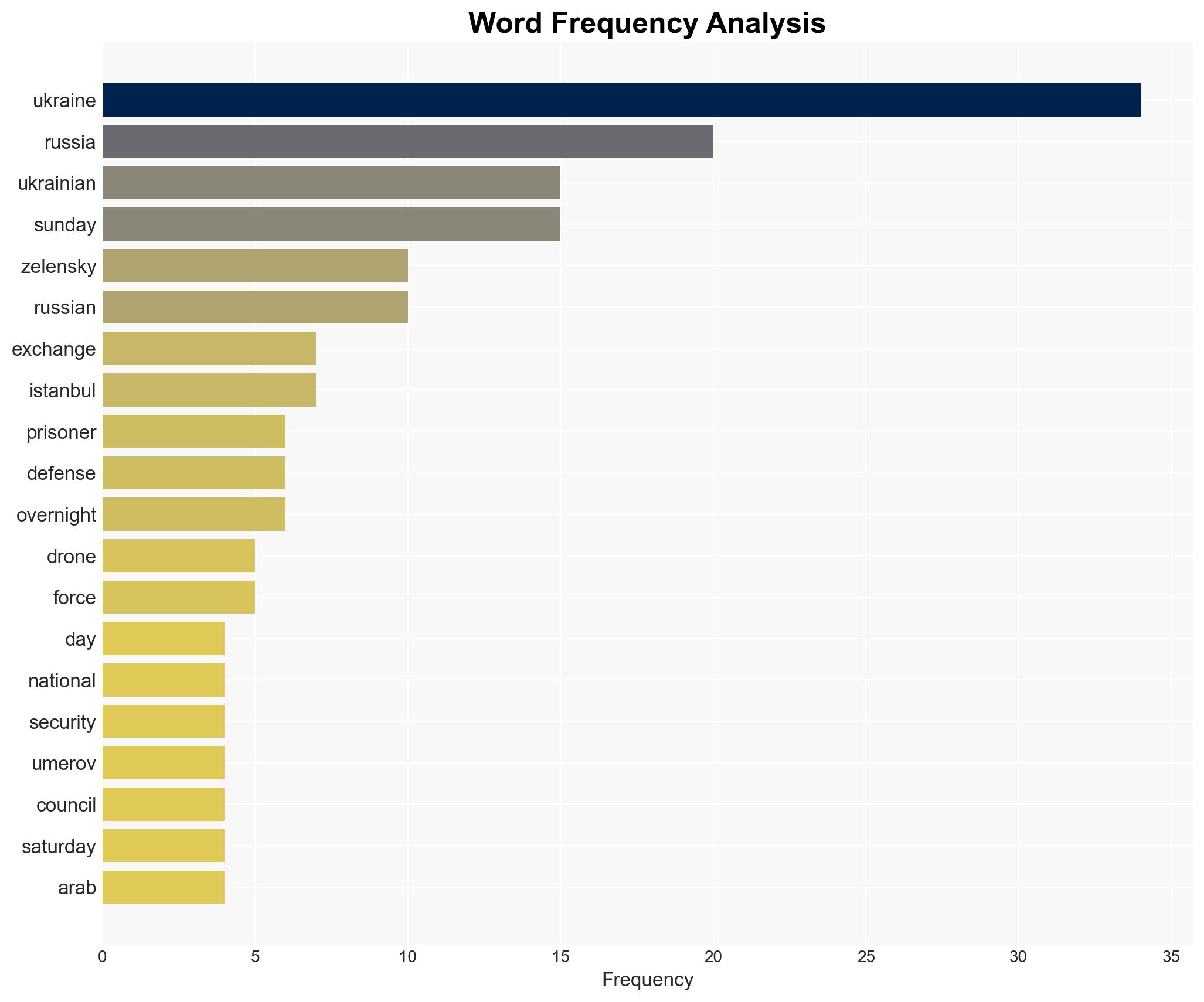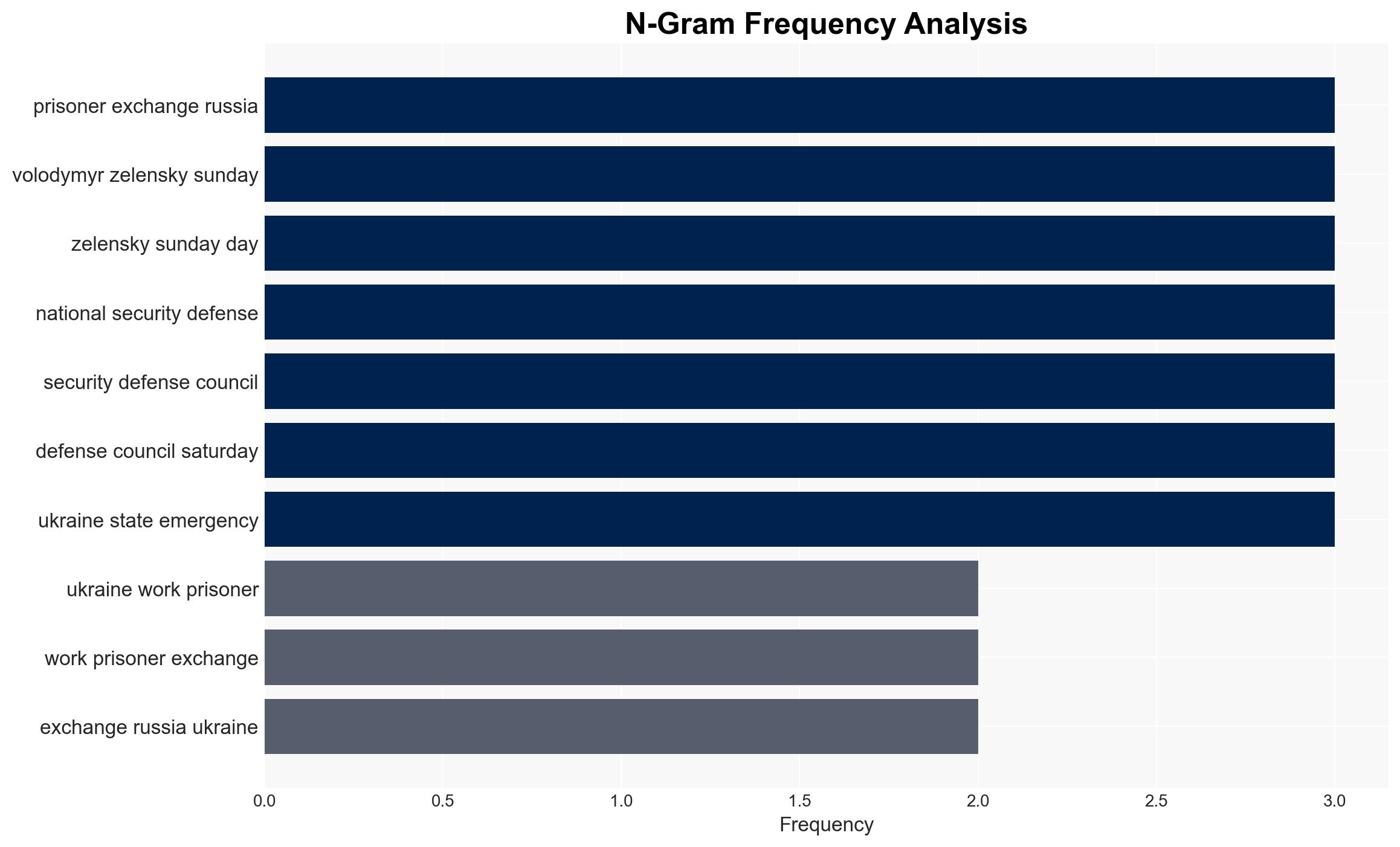Zelensky says Ukraine is working on prisoner exchange with Russia – New York Post
Published on: 2025-11-16
AI-powered OSINT brief from verified open sources. Automated NLP signal extraction with human verification. See our Methodology and Why WorldWideWatchers.
Intelligence Report:
1. BLUF (Bottom Line Up Front)
With a moderate confidence level, the most supported hypothesis is that the prisoner exchange negotiations between Ukraine and Russia, facilitated by Turkey and the UAE, are genuine and aimed at achieving a humanitarian outcome. However, the potential for strategic manipulation by Russia remains a concern. Recommended actions include monitoring the negotiations for signs of bad faith and preparing contingency plans for potential escalation in other areas of conflict.
2. Competing Hypotheses
Hypothesis 1: The negotiations for a prisoner exchange are genuine and primarily humanitarian, aimed at de-escalating tensions and improving bilateral relations.
Hypothesis 2: The negotiations are a strategic maneuver by Russia to distract from military actions or to gain leverage in other geopolitical areas, potentially using the process to delay or manipulate outcomes.
Hypothesis 1 is more likely due to the involvement of neutral mediators like Turkey and the UAE, and the historical context of previous exchanges. However, Hypothesis 2 cannot be dismissed given Russia’s past strategic behavior.
3. Key Assumptions and Red Flags
Assumptions: The assumption that both parties are negotiating in good faith is critical. It is also assumed that Turkey and the UAE can effectively mediate without bias.
Red Flags: Delays in the negotiation process, sudden changes in Russia’s military posture, or increased propaganda efforts could indicate strategic deception.
4. Implications and Strategic Risks
The successful exchange could lead to a temporary de-escalation in tensions, but failure or manipulation could exacerbate hostilities. There is a risk of Russia using the negotiations to buy time for military regrouping or to influence international opinion. Cyber and informational warfare could be intensified as a distraction or leverage tool.
5. Recommendations and Outlook
- Maintain close monitoring of negotiation developments and prepare diplomatic responses for potential breakdowns.
- Enhance intelligence gathering on Russian military movements and cyber activities.
- Best-case scenario: Successful exchange leading to improved relations and reduced conflict intensity.
- Worst-case scenario: Breakdown of talks leading to increased military aggression and international tension.
- Most-likely scenario: Partial success with some exchanges, but continued underlying tensions and sporadic conflicts.
6. Key Individuals and Entities
Volodymyr Zelensky, Rustem Umerov, Turkey, United Arab Emirates, Moscow.
7. Thematic Tags
Regional Focus, Regional Focus: Eastern Europe, Russia-Ukraine Conflict, International Mediation
Structured Analytic Techniques Applied
- Causal Layered Analysis (CLA): Analyze events across surface happenings, systems, worldviews, and myths.
- Cross-Impact Simulation: Model ripple effects across neighboring states, conflicts, or economic dependencies.
- Scenario Generation: Explore divergent futures under varying assumptions to identify plausible paths.
Explore more:
Regional Focus Briefs ·
Daily Summary ·
Support us
·





